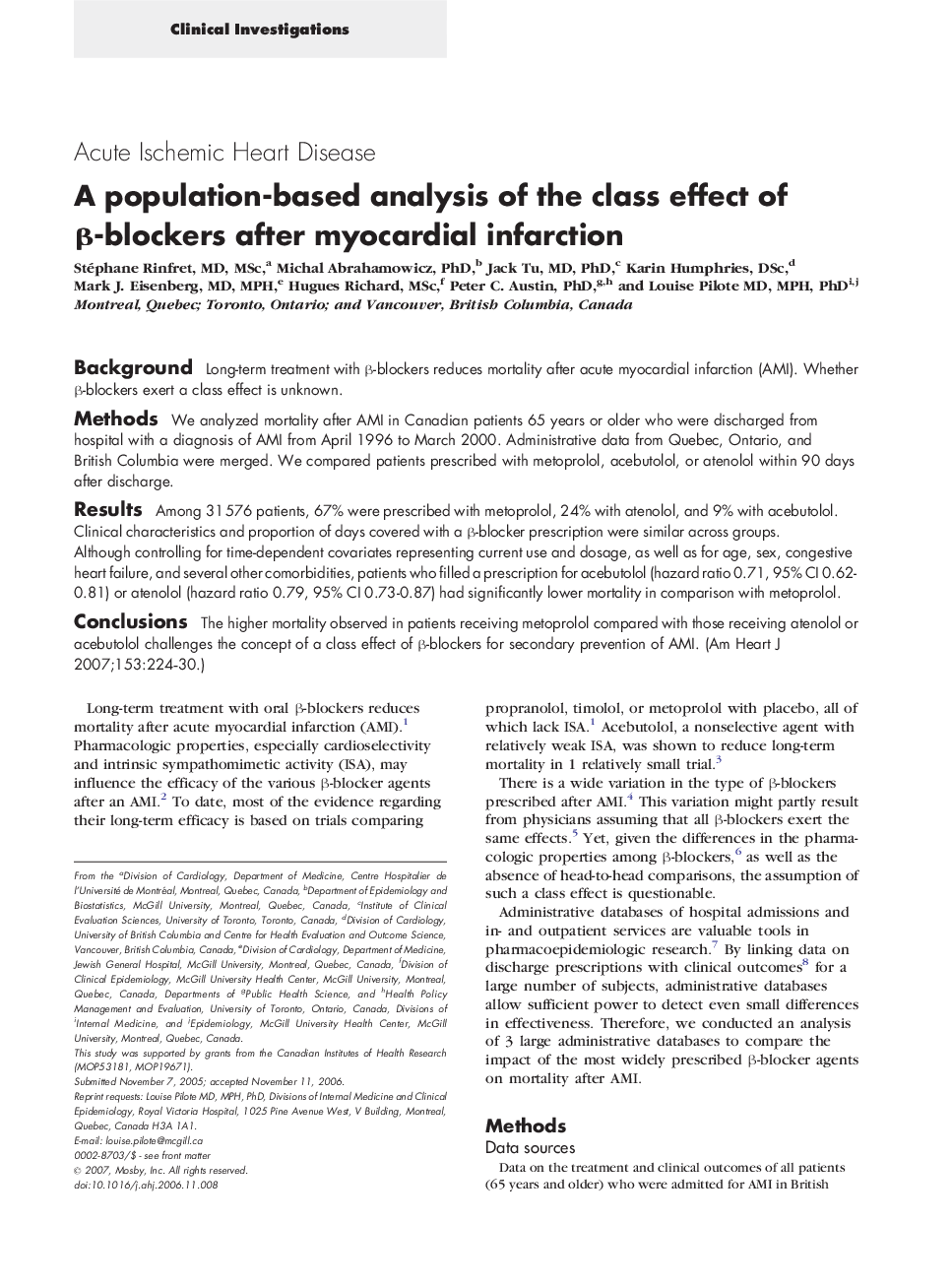| Article ID | Journal | Published Year | Pages | File Type |
|---|---|---|---|---|
| 2850022 | American Heart Journal | 2007 | 7 Pages |
BackgroundLong-term treatment with β-blockers reduces mortality after acute myocardial infarction (AMI). Whether β-blockers exert a class effect is unknown.MethodsWe analyzed mortality after AMI in Canadian patients 65 years or older who were discharged from hospital with a diagnosis of AMI from April 1996 to March 2000. Administrative data from Quebec, Ontario, and British Columbia were merged. We compared patients prescribed with metoprolol, acebutolol, or atenolol within 90 days after discharge.ResultsAmong 31 576 patients, 67% were prescribed with metoprolol, 24% with atenolol, and 9% with acebutolol. Clinical characteristics and proportion of days covered with a β-blocker prescription were similar across groups. Although controlling for time-dependent covariates representing current use and dosage, as well as for age, sex, congestive heart failure, and several other comorbidities, patients who filled a prescription for acebutolol (hazard ratio 0.71, 95% CI 0.62-0.81) or atenolol (hazard ratio 0.79, 95% CI 0.73-0.87) had significantly lower mortality in comparison with metoprolol.ConclusionsThe higher mortality observed in patients receiving metoprolol compared with those receiving atenolol or acebutolol challenges the concept of a class effect of β-blockers for secondary prevention of AMI.
